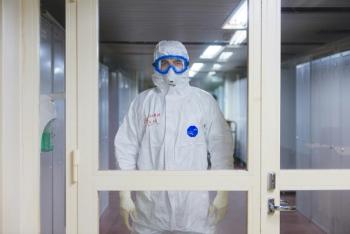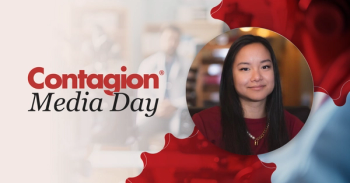
Importance of Outbreak Preparedness in the Healthcare Setting
John D'Angelo, MD, senior vice president, executive director of Emergency Medicine Services at Northwell Health, describes the importance for hospital staff to be prepared for outbreaks.
John D'Angelo, MD, senior vice president, executive director of Emergency Medicine Services at Northwell Health, describes the importance for hospital staff to be prepared for outbreaks.
Interview Transcript (slightly modified for readability)
“When the Ebola outbreak was occurring, as a system we have a very advanced [emergency] management [and emergency] planning division, we worked with them and we trained well over 500 staff members in level 3 PPE, which was above the needed protective gear level. [We] treated 100% of all of our [emergency] department staff: physicians, nurses, everyone in level 1 and level 2 PPE. We did mass training to make sure [that] we had everyone up to par, and we continue to do training, depending on the personnel folks that did the level 3 training. Every few months [the] have to still demonstrate competency, so we rotate around and have trainers go and test people that went through the original training. Our specialized treatment team, which we put together at that time to respond to any[thing], those folks were train at a much higher level. We have both our [emergency] management people that will respond to a scene of a potential incident or need, as well as our internal ED people, trained up to speed.
The other thing that happened during the Ebola time, was that there wasn’t enough [equipment]. We were lucky [that] we had a huge stockpile, but a lot of facilities struggled with having the appropriate equipment even available. There was, all of a sudden, a scarcity of the appropriate mask[s] and gowns and things of that nature. We were actually lending stuff to other health systems because we had enough of it on hand. Most places were doing level 1, level 2 training, [whereas] we trained a lot of people up to level 3.
I think [that] the message to the staff is that it’s not just about Ebola; it’s about anything. I think [that] they all realize that it protects them, it protects their families, their patients. We don’t want anybody to be in a situation where they’re trying to figure it out [in] real time, when they have something in front of them and they’re putting stuff on the wrong way, or they have exposed skin, or they contaminate themselves getting out of the equipment. It's just critical that everybody knows [about emergency management]. This is the job we all chose and we just have to be able to do it safely, so [that] we don’t put ourselves, our famil[ies], or our patients at risk.”
Newsletter
Stay ahead of emerging infectious disease threats with expert insights and breaking research. Subscribe now to get updates delivered straight to your inbox.
































































































































